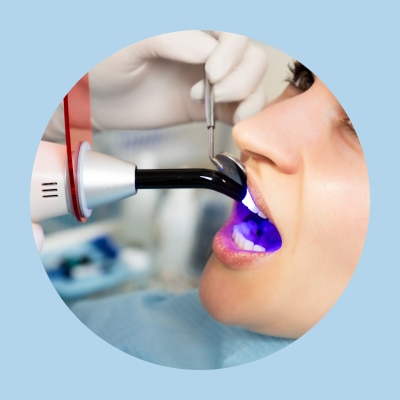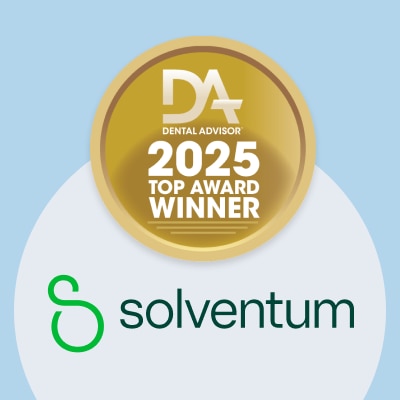How Can Cosmetic Dentistry Help You Build A Thriving Practice?
Cosmetic dentistry is no longer just for the rich and famous, it’s becoming more accessible and sought after than ever before. With the rise of social media and a growing emphasis on aesthetics, more people are looking to enhance their smiles, inspired by the flawless teeth of celebrities and influencers. Is your dental practice keeping up with the demand?
Treatments like teeth whitening, orthodontics, and minimal-prep veneers are particularly popular among younger generations, who see a confident smile as an essential part of their image . While economic pressures and dental tourism have influenced the market, advancements in technology and flexible financing options are making high-quality cosmetic treatments more accessible than ever.
As interest continues to grow, private dental practices have a unique opportunity to expand their offerings and meet this rising demand. At the forefront of this transformative field is Dr. Ashish B. Parmar, an internationally respected dentist with a special interest in cosmetic dentistry and dental implants. With a foundation in general dentistry, Dr. Parmar has been instrumental in delivering exceptional smile makeovers and comprehensive dental care. His commitment to patient-centred treatment and continuous professional development has positioned him as a trusted authority in the industry.
In a recent interview, Dr. Ash shared his insights on how cosmetic dentistry can contribute to building a thriving private practice. The following Q&A encapsulates his perspectives on the evolving landscape of cosmetic dentistry and offers guidance for dental professionals aiming to excel in this dynamic field.
1 Dentistry UK 2024, Mintel Report


Smilers Clear Aligners
Discover Smilers® and Smilers® Expert, for a clear aligners solution that can help deliver advanced orthodontic care.
Cosmetic dentistry has seen a significant rise in demand. How do you see this evolving, and what should private practices do to stay ahead?
"The growing demand for cosmetic dentistry is being driven by a range of factors, from social media influence to changing patient priorities. Younger individuals are particularly drawn to aesthetic enhancements, inspired by the flawless smiles they see on Instagram and other platforms. Many want to achieve the ‘influencer look,’ investing in treatments like teeth whitening, composite bonding, and clear aligners." Dr. Ashish Parmar.
Meanwhile, middle-aged patients often seek cosmetic dentistry for different reasons. Over time, teeth naturally wear down, darken, or even loosen due to age and lifestyle factors.
Many individuals in this group have spent years prioritising their families, and now that their children are grown and they have more disposable income, they’re ready to invest in themselves. Restorative and cosmetic treatments, such as veneers, implants, and full smile makeovers, are particularly appealing to this demographic.
COVID-19 also played a role in this shift. With video calls becoming the norm, many people became more aware of their smiles, leading to a surge in demand for cosmetic procedures. Even as economic conditions fluctuate, the desire for a confident smile remains strong.
To stay ahead, private practices should cater to this evolving demand by offering a comprehensive range of cosmetic treatments tailored to different patient needs. Investing in the latest techniques, using high-quality materials, and ensuring a patient-friendly experience—especially for those who may feel nervous due to past dental trauma—will be key. With competition from dental tourism and changing market dynamics, practices that focus on patient trust, advanced technology, and personalised care will thrive in the future of cosmetic dentistry.
You've trained dentists in cosmetic procedures and smile design. What key skills or mindsets separate good cosmetic dentists from exceptional ones?
"Achieving excellence in cosmetic dentistry goes beyond technical ability. It requires a commitment to continuous learning, hands-on experience, and a willingness to step outside one's comfort zone. While core skills like teeth alignment, whitening, composite bonding, and porcelain restorations form the foundation, what truly sets exceptional cosmetic dentists apart is how they refine and elevate these techniques." Dr. Ashish Parmar.
One of the most effective ways to master these skills is through mentorship and immersive, hands-on training. While reading articles and attending webinars can provide valuable insights, nothing compares to practical experience guided by top experts in the field. The best dental educators offer specialised courses that allow practitioners to develop precision, artistry, and confidence in their techniques.
Another key differentiator is the mindset of embracing change. Many dentists undergo training but hesitate to apply new techniques in practice, falling back into their comfort zones. The most successful cosmetic dentists are those who take action—implementing what they’ve learned and continuously pushing their own boundaries to improve patient outcomes.
Finally, excellence in cosmetic dentistry isn’t just about the dentist’s skill; it’s also about the quality of materials, equipment, and collaboration with expert technicians. Investing in top-tier materials and working with highly skilled technicians can elevate the results significantly. Rather than focusing solely on keeping costs low, exceptional dentists recognise that charging slightly more for premium treatments allows them to invest in the best resources—delivering outstanding, world-class results for their patients.

Keep up-to-date with Dr. Parmar's latest course, tips, and case studies.
Dr. Ashish B. Parmar
Keep up-to-date with Dr. Parmar's latest course, tips, and case studies.

Dr. Ashish B. Parmar
Keep up-to-date with Dr. Parmar's latest course, tips, and case studies.
What advice would you give to younger dentists looking to build confidence and excel in cosmetic dentistry?
"For younger dentists aspiring to establish themselves in cosmetic dentistry, mastering technical skills is just one piece of the puzzle—confidence, communication, and mindset play equally crucial roles. One of the most powerful tools in a dentist’s arsenal is dental photography. High-quality images allow patients to see their teeth up close, often revealing imperfections they hadn’t noticed before. This not only enhances patient communication but also helps guide them through the decision-making process." Dr. Ashish Parmar.
Similarly, digital tools like intraoral scanners can transform consultations, enabling dentists to visually demonstrate dental issues and potential treatment outcomes in real time. Rather than ‘selling’ treatments, the goal should be to involve patients in their own smile journey—encouraging them to reflect on how they feel about their teeth and what changes they might want. This co-discovery approach fosters trust and leads to more engaged and confident patients.
Beyond technical skills, developing a resilient mindset is key. Every successful cosmetic dentist has made mistakes along the way—what sets the best apart is their ability to learn from them. Dentistry is full of variables, from patient habits to lab work, and not everything will always go as planned. The important thing is not to fear setbacks but to embrace them as learning opportunities. Strong self-belief, ongoing skill development, and a willingness to adapt are the foundations of long-term success in cosmetic dentistry.

Beyond clinical skills, you also coach dentists on building a successful and balanced career. What's one major mindset shift that can help dentists achieve profitability and job satisfaction?
"Success in dentistry isn’t just about clinical expertise - it’s also about balance, mindset, and personal well-being. Dentistry can be a high-pressure profession, with stress levels that can take a toll if left unchecked. That’s why one of the most valuable mindset shifts is recognising that your health is your wealth." Dr. Ashish Parmar.
Many dentists focus solely on growing their practice but forget the importance of stepping back to recharge. Taking time away from work - whether through mindfulness practices, exercise, or simply spending time with loved ones - isn’t a luxury; it’s essential. For example, even taking one day a week to reset can make a significant difference in energy levels and long-term job satisfaction.
As my father said: “When you’re young, you chase wealth; when you’re older, you chase health”. By prioritising both early on, dentists can build not just a profitable career, but a sustainable and fulfilling one.
Beyond this, embracing a bigger-picture perspective - one that includes personal development, mental resilience, and even spiritual growth - can help dentists find deeper purpose and success in their professional journey.
What do you think will be the key to retaining patients between now and 2030?
"In a fast-paced, digital world where patients have endless options, slowing down and building genuine relationships will be the key to retention. Social media and instant gratification have reshaped how people think, but when it comes to healthcare—especially cosmetic dentistry—trust, connection, and personalised care remain irreplaceable." Dr. Ashish Parmar.
Many dentists rush through appointments due to time constraints, but patients remember how you make them feel, not just the treatment you provide. Taking the time to listen, understand their concerns, and treat them like a valued guest rather than just another case fosters lasting loyalty. With increasing competition from dental tourism and budget options abroad, practices must work harder to create an exceptional patient experience. This means investing in branding, marketing, and customer service to establish a strong identity that keeps patients engaged.
Beyond just clinical care, understanding patient psychology and communication styles is crucial. Tools like the DiSC personality profile system can help dentists tailor their approach to different personalities, improving interactions and treatment acceptance. Additionally, a holistic approach - acknowledging stress, lifestyle factors, and even offering relaxation techniques - can set a practice apart.
At its core, patient retention in the future will depend on human connection. Practices that master this - while leveraging modern technology and exceptional service - will thrive in an increasingly competitive landscape.















